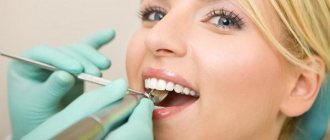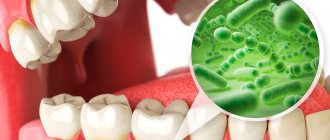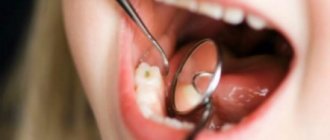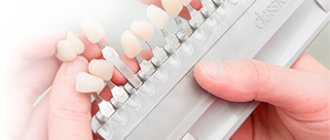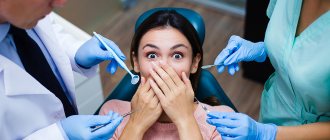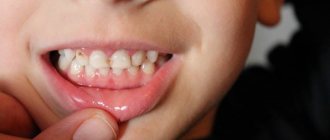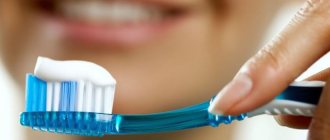The issue of going to the dentist during lactation is one of the most pressing. Dental treatment while breastfeeding is harmless, but necessary. A breastfeeding mother risks losing her teeth and passing on tooth decay to her baby by licking his spoons and pacifiers. Why does the fragility of mother’s teeth increase during this period? The fact is that, together with milk, it transfers calcium to the child, strengthening his body. At the same time, its lack in women provokes problems with the oral cavity. Therefore, the appearance of dental ailments during this period of time is not uncommon.
Is it possible to treat teeth while breastfeeding?
Lactation is not a reason to avoid going to the dentist. A nursing mother should visit the dentist more often than usual. But before the doctor begins treatment, you need to inform him about breastfeeding so that he can select the right pain reliever. Anesthesia during breastfeeding should be gentle and quickly eliminated from the body. Then she does not pose any threat to the baby.
There is no danger when taking an x-ray. Its rays do not have any harmful effect on milk. These statements are erroneous. A lead apron will help protect your chest and stomach.
Dental treatment during lactation is possible, but not all procedures are permitted. The standard procedure for eliminating caries has no contraindications. But installing braces or implantation will have to wait.
Is it possible to use anesthesia during breastfeeding?
When treating teeth, you should not refuse anesthesia just because the mother is breastfeeding. There are modern drugs with a short-term effect - ultracaine and lidocaine. They are safe for the child and are eliminated from the body after a few hours. If you are concerned about the quality of milk, it is recommended to feed your baby before visiting the doctor, and after treatment to express your breasts.
Sometimes at a doctor’s appointment it turns out that the situation is much more complicated than it seemed. In this case, serious treatment and medications that are incompatible with lactation will be required. What to do? The best option would be formula feeding for this period. To preserve the mother's milk, it is recommended to express regularly so that lactation does not stop. However, modern medications are in most cases compatible with breastfeeding.
Additional Resources
Centers for Disease Control and Prevention (CDC) Proper Handling and Storage of Breast Milk www.cdc.gov/breastfeeding/recommendations/handling_breastmilk.htm Provides information on how to safely handle and store breast milk.
Breastfeeding USA www.breastfeedingusa.org Provides breastfeeding information and support.
International Lactation Consultant Association www.ilca.org 888-452-2478 Find an IBCLC to find an International Board-Certified Lactation Consultant Lactation Consultant®, IBCLC) and working close to where you live.
United States Lactation Consultant Association https://uslca.org/ Find an IBCLC to find an International Board-Certified Lactation Consultant Consultant, IBCLC) and working near your place of residence.
Tooth extraction and lactation
If the tooth decay is so severe that there is no way to save and cure it, the doctor performs an extraction. For this, local anesthesia is used. Breastfeeding is not a reason to refuse this procedure, since in this situation there is often severe inflammation and pain. Therefore, we cannot wait. It is necessary to inform the dentist in advance about lactation so that he can select the right anesthesia and antibiotics.
There is no need to wean the baby from the breast during the period of removal and recovery. The only recommendation is for the mother to stop eating solid food.
It is impossible to delay treatment, since a decayed tooth is a source of infection that will spread throughout the body and be passed on to the child.
Prevention of caries
Dental treatment during lactation is a necessary but unpleasant procedure. It is recommended to carry out preventive measures to prevent problems with the oral cavity.
You should start taking care of your teeth at the stage of pregnancy planning. Regular visits to the dentist, professional cleaning, removal of stones - all this will prevent many dental diseases that await a mother during the period of waiting for a child and lactation. If there are old fillings, it is necessary to assess their condition, replacing them with new ones if necessary. Remineralization or fluoridation procedure will help strengthen your teeth.
During pregnancy, dental treatment is allowed from the second trimester. As a preventive measure, it is recommended to use toothpastes with a high fluoride content, and you should brush your teeth every time after eating. It is necessary to remove plaque from the tongue, where a large number of bacteria are present. It will not be superfluous to rinse the mouth with solutions that have an anti-inflammatory and preventive effect.
The nutrition of pregnant and lactating women is of great importance. It is important to get the right amount of vitamins and minerals, especially calcium, which has a strengthening effect on teeth. It is necessary to consume as many fruits and vegetables and dairy products as possible. Additionally, it is worth buying a multivitamin complex at the pharmacy, but only after consulting a doctor.
What happens to teeth after childbirth: 10 main questions for the dentist
We selected the most popular questions from nursing mothers and asked the doctor to answer them. After pregnancy, many women begin to have problems with their teeth: caries, inflammation of the gums, loss of fillings. The reason is decreased immunity and lack of calcium in the body after the birth of the baby.
You don’t really want to go to the dentist at this time, especially since it is widely believed that treating teeth during this period is dangerous. In fact, a nursing mother should visit the dentist even more often than usual, because preventing a disease is easier than treating it. Conventional prevention will also help you avoid many dental problems, but it’s worth taking into account some nuances.
We collected the most frequently asked questions from nursing mothers about the treatment and prevention of dental diseases and took them to Volker Grossmann, chief physician of the German Dentistry clinic.
Is it possible to treat teeth for nursing mothers?
Can. Treatment of caries, installation of crowns and tooth extraction are carried out under local anesthesia. Modern anesthetics are absorbed into the blood in minimal quantities, but it still takes 3-6 hours for no trace of them to remain in the body.
Before visiting the doctor, you should make a daily supply of breast milk for your baby. Since after anesthesia, breastfeeding is not recommended for 24 hours. At the same time, it is important not to forget to simply express.
If flux or other inflammations have developed, the dentist will prescribe a course of antibiotics. During this time, you will have to switch your baby to formula feeding and express milk six times a day to maintain lactation.
There are no contraindications for installing implants during feeding, but it is better to postpone this procedure. Your doctor will help you decide on the right time.
Installing braces and correcting the bite creates extra stress on the jaw bones, which are already weakened after childbirth. Therefore, it is better to start treatment with an orthodontist after finishing breastfeeding.
Is it necessary to take calcium after childbirth to strengthen teeth?
Calcium is the number one element for strong teeth. If a person eats well, including foods rich in calcium (cottage cheese, sour cream, cheese, poppy seeds, sesame seeds), then the body receives enough of this mineral.
To maintain health after childbirth, you can take vitamin and mineral supplements for nursing mothers; they will also have a beneficial effect on your teeth.
Can nursing mothers whiten their teeth?
Much depends on the condition of the oral cavity. Some breastfeeding mothers experience increased sensitivity of their teeth and gums, and aggressive whitening pastes can further intensify this process.
After childbirth, it is better to use toothpastes for sensitive teeth. And a few months later, if the teeth and gums are in good condition, try whitening toothpastes.
It is better for nursing mothers to avoid chemical whitening (both at home using a mouth guard and procedures at the dentist). But the procedure for brushing teeth without using Air Flow reagents is suitable.
How to prevent darkening of enamel after childbirth
Brushing your teeth morning and evening, a good toothbrush and toothpaste, rinsing your mouth after meals, and using dental floss will help prevent not only the darkening of your teeth, but also the formation of tartar.
What to do if your gums bleed after brushing your teeth
Modern brushes have soft silicone and polymer bristles that remove plaque well and do not damage tooth enamel and gums. Therefore, after cleaning with a good brush there should not be such a problem. Blood may appear if:
- press too hard on the toothbrush
- your toothbrush is too old (service life - no more than 3 months),
- you have formed tartar (it must be removed by a hygienist),
- you have bad fillings or crowns (overhanging edges, sharp edging cause mechanical damage to soft tissues),
- gums are inflamed (the cause may be mechanical, thermal or chemical injuries).
If all of the above is excluded, and medicinal rinses do not help, you should consult a doctor.
Are fluoride toothpastes good or bad?
Previously, toothpastes with fluoride were widely advertised, but today opinions have appeared in the press that fluoride is harmful. But no evidence has yet been found; science still believes that fluoride is an excellent tool for strengthening teeth.
It's all about quantity. Large dosages of fluoride are bad for teeth, but toothpaste contains little of it.
Today, pastes with fluorides (fluoride compounds) and calcium phosphate are considered the best means for saturating teeth with minerals.
Which toothpastes may be dangerous for nursing mothers?
Read the ingredients of your toothpaste. There are still toothpastes containing parabens on the market. French mammologist Philippa Darbre has proven that parabens cause breast cancer. Since 2014, in France it is prohibited to add them to any hygiene and cosmetic products. But in some countries parabens are still used, for example in Japan.
Japanese toothpastes with parabens are still sold in Russia; they can be dangerous for mother and baby.
Which toothbrush is better - with natural bristles or synthetic bristles?
Even 50 years ago, scientists found out that the brush should only be made of synthetic fibers.
But today everything natural is in fashion, and wooden Sivak sticks, brushes with natural pork bristles, horse hair, mountain goat hair, badger hair, and so on have appeared on sale.
Women after pregnancy and all other people should not use such brushes.
Natural materials have many pores where bacteria linger and multiply, causing inflammatory processes in the mouth. I tend to recommend using synthetic toothbrushes and replacing them every three months.
Which brush is better - regular or electric?
Electric brushes clean your teeth better. But it is very important not to press too hard on the brush, this has a bad effect on your teeth and, more importantly, on your gums. Buy brushes with an indicator that helps you control the pressure. If you press hard on the brush, the red light will light up.
Modern brushes have turned into super-sophisticated gadgets. For example, some models can be connected via Bluetooth to your smartphone, which makes it possible to control the time required to brush your teeth in different modes using motion and pressure sensors.
The brush has several attachments, including ones for sensitive teeth, which will be useful for a nursing mother.
The best way to clean hard-to-reach places in the mouth
Do not clean the space between your teeth with wooden sticks. They break and get stuck, and then you have to go to the doctor to remove the broken piece of toothpick.
Dental floss is the easiest way to clean hard-to-reach places. It is advisable to use it in the evening every day.
Another option is an irrigator. This is a mini dental shower, similar to a dental instrument, from which a stream of water flows under pressure. The irrigator cleans well the space between teeth and old plaque, simplifies the care of crowns and braces, implants and bridges, and also massages the gums.
Source



